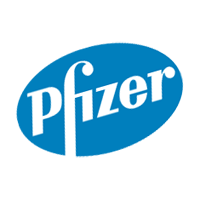WASHINGTON D.C.
 Federal authorities announced today that two pharmaceutical companies agreed to settle a lawsuit and pay $784.6 million in connection with allegations that they falsified reports to the government on two drugs, which allegedly cheated Medicaid from getting drug rebates, according to officials.
Federal authorities announced today that two pharmaceutical companies agreed to settle a lawsuit and pay $784.6 million in connection with allegations that they falsified reports to the government on two drugs, which allegedly cheated Medicaid from getting drug rebates, according to officials.
Wyeth and Pfizer Inc. agreed that Wyeth knowingly reported to the government false and fraudulent prices on two of its proton pump inhibitor drugs, Protonix Oral and Protonix IV.
Pfizer, which is headquartered in New York City, acquired New Jersey-based Wyeth in 2009, approximately three years after Wyeth had ended the conduct that gave rise to the settlement, according to officials.
“This significant settlement illustrates that the government will not permit drug companies to dodge their obligations to the Medicaid program or create elaborate pricing schemes to deceive Medicaid into paying more than it should for drugs,” said U.S. Attorney Carmen Ortiz for the District of Massachusetts. “This settlement, after years of hard-fought litigation, shows our commitment to ensuring that healthcare businesses do not take advantage of the federal health insurance programs which serve those who need assistance most.”
The case was brought to light under the False Claims Act by Lauren Kieff, a former hospital sales representative for the pharmaceutical company AstraZeneca Pharmaceuticals, LP, and William St. John LaCorte, a physician practicing in New Orleans, Louisiana.
Under the False Claims Act, private parties may sue on behalf of the government for false claims for government funds and to receive a share of any recovery.
Kieff and LaCorte will get $98 million from the settlement proceeds of $784. 6 million.
According to the government’s complaint, this is what happened:
Wyeth sold Protonix Oral and Protonix IV through a bundled sales arrangement in which a hospital could earn deep discounts on both drugs if it made them “available” within the hospital.
Through this bundled arrangement, Wyeth sought to induce hospitals to buy and use Protonix Oral, which hospitals otherwise would have had little incentive to use, because other pre-existing oral PPI drugs were priced competitively and were considered to be as safe and effective.
Wyeth wanted to control the hospital market because patients discharged from the hospital on Protonix Oral were likely to stay on the drug for long periods of time, rather than switch to competing PPIs, during which time payers, including Medicaid, would pay nearly full price for the drug.
Under the Medicaid program, which is the nation’s provider of health insurance to the poor and disabled, drug companies must report to the government the best prices they offer other customers for their brand name drugs.
Based on these reported best prices, the drug companies pay rebates to the state Medicaid programs so that Medicaid, a large purchaser of drugs, receives the benefit of the same discounts drug companies offer to other large customers in the marketplace.
The government alleged that Wyeth hid from Medicaid the bundled discounts Wyeth gave to hospitals on Protonix Oral and Protonix IV.
As a result, Wyeth wrongfully avoided paying hundreds of millions of dollars in rebates to Medicaid during the period from 2001 to 2006.
Under the terms of today’s settlement, Wyeth will pay $413,.2 million to the federal government and $371.3 million to state Medicaid programs.
“This settlement demonstrates our unwavering commitment to hold pharmaceutical companies responsible for pursuing pricing schemes that attempt to manipulate and overcharge federal health care programs – programs that protect the poor and disabled – for drugs sold to commercial customers at much lower prices,” said Principal Deputy Assistant Attorney General Benjamin C. Mizer, head of the Justice Department’s Civil Division.

